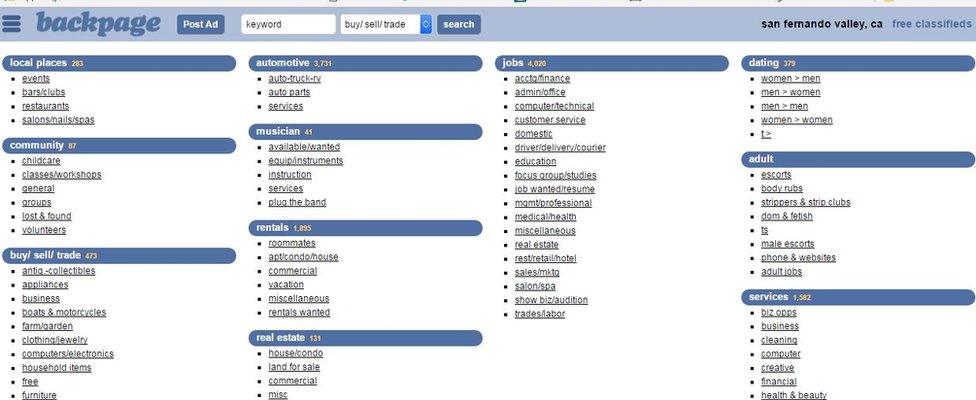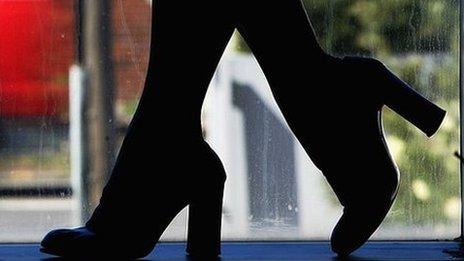Backpage.com pimping case dismissed by judge
- Published

Prosecutors had alleged that most of Backpage.com's profits were derived from sex trade ads
Accusations the operators of a website likened to being an "online brothel" had engaged in pimping have been dismissed by a judge.
The Californian authorities had claimed Backpage.com's boss and two of its former owners had generated millions of dollars by hosting sex trade ads, some of which involved under-age children.
Prosecutors told the judge Backpage.com had screened the ads on its site.
But the judge ruled they could not be held liable for third parties' actions.
"This court finds it difficult to see any illegal behaviour outside of the reliance upon the content of speech created by others," said Judge Michael Bowman.
His decision was based on 1996's Communications Decency Act, which says publishers should not be held responsible for content created solely by their users.
The case against Backpage.com had alleged that it should not, external qualify for protection because it "helps pimps and traffickers develop the ads they post".
The site had previously stated it used both an automated system searching for key words and human review to check the contents of every post to its adult section, external.
But the judge said he needed further evidence that the site was actually involved in the notices' creation.
Charges of pimping a minor, pimping and conspiracy to commit pimping have now been dropped against the site's chief executive, Carl Ferrer, while charges of conspiracy to commit pimping have also been dropped against its ex-owners Michael Lacey and James Larkin.
A spokesman for the business described the attempted prosecution of the men as an "abuse of power".
But California's attorney general, Kamala Harris, who will shortly become a senator for the Democrat Party, said she intended to find other means to hold the men to account.
"We will not turn a blind eye to the defendants' exploitative behaviour simply because they conducted their criminal enterprise online rather than on a street corner," she said.
- Published20 October 2016

- Published10 October 2016

- Published7 October 2016

- Published20 March 2012
